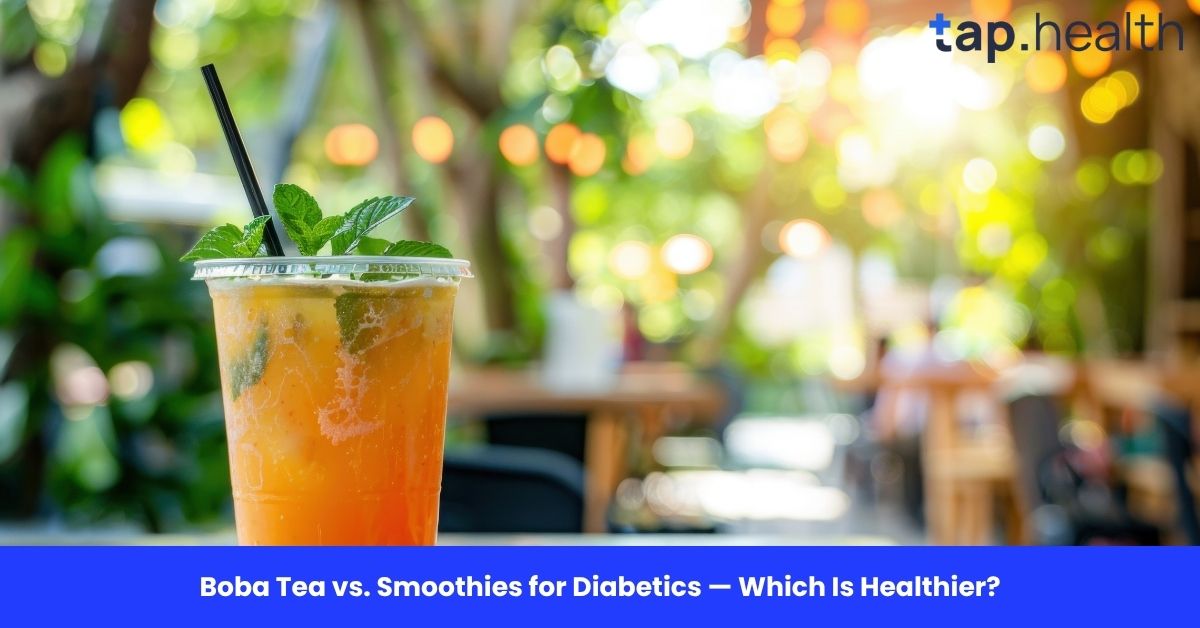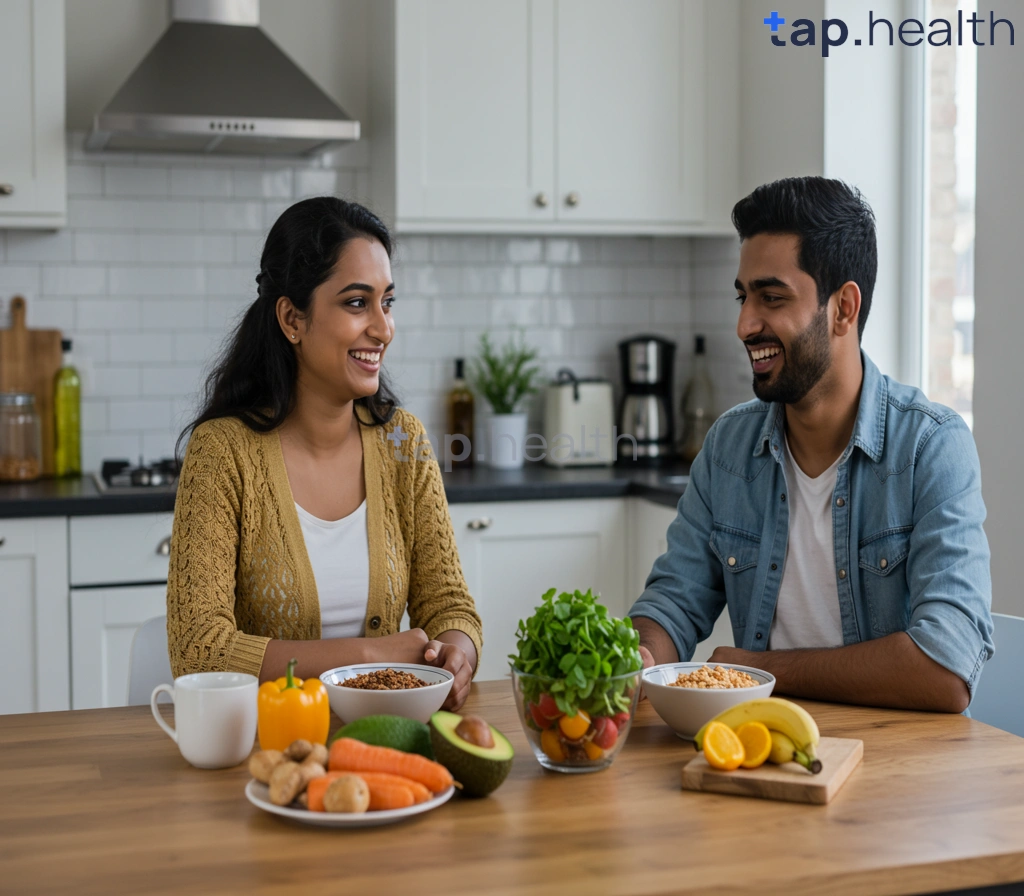For individuals managing diabetes, every food and drink choice can significantly impact blood sugar levels. Among the popular options, Boba Tea and Smoothies are often enjoyed for their refreshing taste and convenience. However, when it comes to managing diabetes, the question arises: which is healthier — Boba Tea or Smoothies?
In this article, we’ll dive deep into the nutritional profiles of both beverages, explore their potential effects on blood sugar, and evaluate which drink might be a better option for diabetics. By the end, you’ll have a clearer understanding of how Boba Tea and Smoothies compare when it comes to blood sugar management.
What is Boba Tea?
The Basics of Boba Tea
Boba Tea, also known as Bubble Tea, originated in Taiwan in the 1980s and has gained worldwide popularity. Traditionally, it is made with tea (black, green, or oolong), milk (or fruit-based liquids), and chewy tapioca pearls. The pearls are typically soaked in a sweet syrup, which adds significant sugar content to the drink.
Today, many variations of Boba Tea exist, ranging from fruit-flavored to milk tea versions, and some even include jelly, popping boba, or other sweet additions.
Nutritional Profile of Boba Tea
The nutritional content of Boba Tea varies depending on the ingredients used. On average, a standard 16-ounce serving of Boba Tea contains:
- Calories: 200-400 kcal (depending on the type and size)
- Sugar: 30-60 grams
- Carbohydrates: 40-75 grams
- Fat: 0-5 grams
- Protein: 0-5 grams
The high sugar content in Boba Tea comes primarily from the syrup used to sweeten the tapioca pearls, along with added sugar or syrups in the tea or milk.
What is a Smoothie?
The Basics of Smoothies
Smoothies are typically made by blending fruits, vegetables, yogurt, milk, or juice into a thick, nutritious drink. They can be sweetened with honey, agave, or fruit, and some smoothies include protein powders or supplements for an added nutritional boost.
Smoothies are often marketed as a healthy option due to their inclusion of fresh fruits and vegetables, which provide essential vitamins and fibre.
Nutritional Profile of Smoothies
The nutritional content of a smoothie depends on the ingredients used. For example, a simple fruit smoothie made with berries, banana, and yogurt may contain:
- Calories: 150-300 kcal
- Sugar: 20-40 grams (from natural sugars in fruits)
- Carbohydrates: 30-50 grams
- Fat: 0-5 grams (depending on the use of yogurt or milk)
- Protein: 5-15 grams (depending on added protein powder)
Smoothies can be a great source of fibre, vitamins, and antioxidants, but their sugar content, even from natural sources, can still be a concern for diabetics.
Boba Tea vs. Smoothies — How Do They Impact Blood Sugar?
How Boba Tea Affects Blood Sugar
Boba Tea is high in simple sugars, particularly from the syrup-soaked tapioca pearls. When consumed, these sugars are rapidly absorbed into the bloodstream, causing a quick spike in blood sugar levels. For diabetics, this can be problematic, as it may lead to difficulty in managing blood glucose levels.
- Glycemic Index (GI): The glycemic index of Boba Tea is quite high, meaning it can cause a rapid increase in blood sugar.
- Insulin Response: High sugar content can prompt a large insulin response, which can be especially concerning for those with insulin resistance.
Boba Tea’s impact on blood sugar is largely influenced by the amount of added sugar, the portion size, and the type of milk or fruit used. In general, it’s a drink best consumed occasionally and in moderation, especially for those managing diabetes.
How Smoothies Affect Blood Sugar
Smoothies, especially those made with fruits and dairy or non-dairy milk, contain natural sugars (like fructose from fruits). While these sugars are slower to absorb compared to added sugars, they can still raise blood sugar levels. The overall effect depends on:
- Type of Ingredients: Smoothies made with low-GI fruits, like berries or apples, are less likely to cause significant blood sugar spikes. On the other hand, smoothies with high-GI fruits like bananas or mangoes can cause quicker spikes.
- Added Sugars: Many store-bought smoothies or smoothie bowls are packed with extra sugar, honey, or syrup, which can increase the drink’s glycemic index.
- Fibre Content: Fibre, especially from vegetables, oats, or chia seeds, helps slow down the absorption of sugar and can have a positive effect on blood sugar regulation.
A well-balanced smoothie made with low-GI fruits, vegetables, and a source of protein can be a healthier option for diabetics than Boba Tea, as it can help stabilise blood sugar.
Read this : How Many Calories in Boba? Full Nutritional Breakdown
Which Drink is Healthier for Diabetics?
Boba Tea: A Sweet Treat with High Sugar Content
Boba Tea is generally not the healthiest choice for diabetics. The high sugar content from the sweetened tapioca pearls and syrup can cause rapid blood sugar spikes, making it challenging to manage diabetes effectively. The drink’s glycemic index is high, which means it can contribute to insulin resistance when consumed frequently.
Smoothies: A Healthier Option (If Made Right)
Smoothies can be a healthier choice for diabetics, particularly when made with fresh ingredients and low-GI fruits. By using non-sweetened or low-fat ingredients like almond milk, unsweetened yogurt, and fibre-rich vegetables, diabetics can create a smoothie that provides vitamins, fibre, and protein without causing drastic blood sugar fluctuations.
- Advantages of Smoothies:
- Rich in fibre and antioxidants
- Can be tailored to low-sugar, low-GI ingredients
- Can include a source of protein to help stabilise blood sugar
Tips for Making Healthier Boba Tea and Smoothies for Diabetics
Healthier Boba Tea Options
If you still enjoy Boba Tea but want to make it diabetes-friendly, consider these modifications:
- Choose a Low-Sugar Version: Many Boba Tea shops allow you to control the sweetness level. Opt for “no sugar” or a reduced sugar level.
- Skip the Tapioca Pearls: While they are the signature ingredient, tapioca pearls are high in carbs. You can replace them with fruit-based boba or skip them altogether.
- Use Non-Dairy Milk: Choose unsweetened almond or oat milk to reduce the sugar content.
Healthier Smoothie Options
To make smoothies more suitable for diabetics, try the following:
- Use Low-GI Fruits: Stick to fruits like berries, apples, and pears that have a lower glycemic index.
- Add Fibre: Include vegetables like spinach or kale, chia seeds, or oats to increase fibre and slow down sugar absorption.
- Avoid Added Sugars: Skip the honey, agave, or flavoured syrups. If you need sweetness, use a small amount of stevia or monk fruit sweetener.
- Include Protein: Adding protein powder, Greek yogurt, or a scoop of nut butter can help stabilise blood sugar levels and keep you full for longer.
Key Takeaways
- Boba Tea is typically high in sugar and has a high glycemic index, making it a less suitable option for diabetics.
- Smoothies can be a healthier choice, especially if made with low-GI fruits, non-sweetened milk, and additional fibre or protein.
- Both drinks can be enjoyed in moderation, but diabetics should be mindful of the ingredients and opt for lower-sugar, more balanced versions.
- Modifying the ingredients and portion sizes can make both Boba Tea and smoothies more suitable for diabetics.
FAQ on Boba Tea vs. Smoothies for Diabetics
Which is worse for blood sugar: Boba Tea or Smoothies?
Boba Tea is typically worse for blood sugar due to its high sugar content from syrup-soaked tapioca pearls. Smoothies can be healthier, especially if made with low-GI fruits and without added sugars.
Can diabetics drink smoothies?
Yes, diabetics can drink smoothies, but it’s important to make them with low-sugar ingredients like berries, vegetables, and unsweetened milk to avoid blood sugar spikes.
Is Boba Tea okay for diabetics?
Boba Tea is not ideal for diabetics due to its high sugar content, especially from the tapioca pearls. It’s best consumed occasionally and in moderation.
How can I make my smoothie healthier for diabetes?
Make your smoothie healthier by using low-GI fruits, adding fibre-rich vegetables, and avoiding added sugars. Adding a source of protein can also help stabilise blood sugar.
Are smoothies high in sugar for diabetics?
Smoothies can be high in sugar, especially if made with sweet fruits or added sugars. Opt for low-sugar fruits and skip sweeteners to keep the sugar content low.
Which fruits are best for diabetics in smoothies?
Fruits like berries, apples, and pears are great options for smoothies, as they have a lower glycemic index and are less likely to cause blood sugar spikes.
Can I drink Boba Tea if I have type 2 diabetes?
It’s best to avoid Boba Tea regularly if you have type 2 diabetes due to its high sugar content. If you choose to have it, opt for a low-sugar version with fewer sweeteners.
What is the best drink for diabetics?
The best drinks for diabetics include water, herbal teas, and smoothies made with low-GI ingredients, high fibre, and added protein. Avoid sugary drinks and those with high glycemic indexes.



